The most beginner-friendly type of rock climbing is called bouldering. Most gyms offer auto belays for beginners as well as a bouldering area. Although bouldering is a highly social sport, going alone is rather common when climbing. In many cases, it's even better!
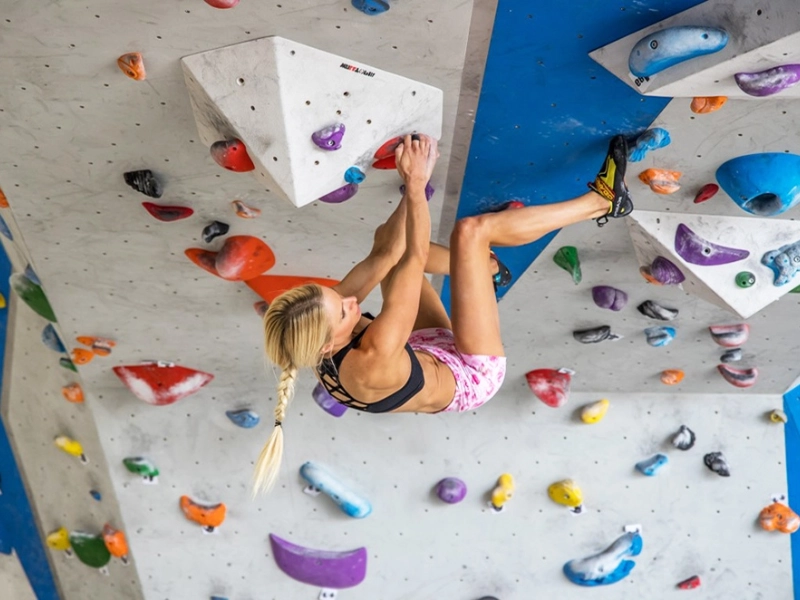
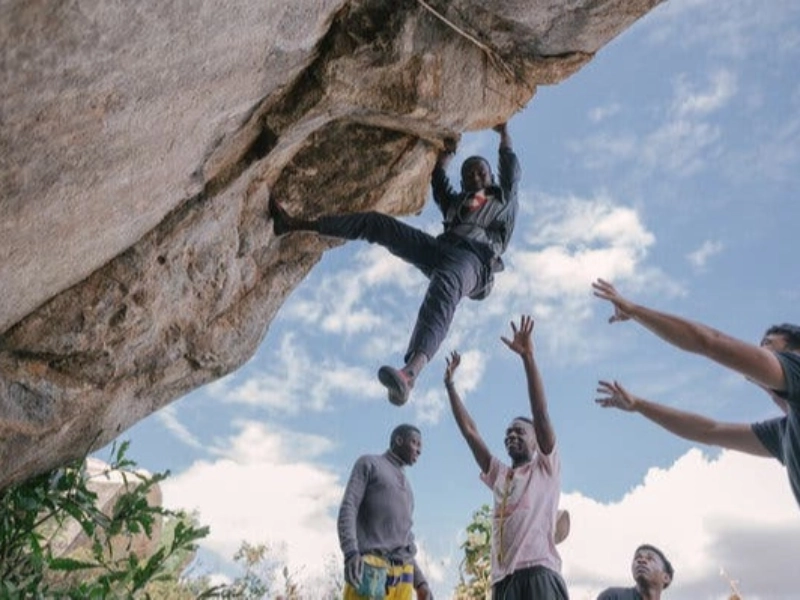 A fun and demanding activity that demands a lot of strength and stability is bouldering. Building this foundation can be aided by a core-conditioning and support weight training programme.
It's crucial to be ready for anything when bouldering alone. This includes carrying extra pads to cushion your fall (a term used in climbing terminology) and keeping an eye out for any potential falling risks, such as nearby rocks or other climbers.
Nik also suggests carrying extra pads as you advance and having a ratcheting tie-down method to swiftly stack pads. Additionally, you should be ready to leap from the bouldering wall if necessary, but make sure no one is underneath or nearby. This will stop any mishaps. Additionally, don't be scared to enquire of other climbers or pick up tips from them by observing how they change their hips and feet.
A fun and demanding activity that demands a lot of strength and stability is bouldering. Building this foundation can be aided by a core-conditioning and support weight training programme.
It's crucial to be ready for anything when bouldering alone. This includes carrying extra pads to cushion your fall (a term used in climbing terminology) and keeping an eye out for any potential falling risks, such as nearby rocks or other climbers.
Nik also suggests carrying extra pads as you advance and having a ratcheting tie-down method to swiftly stack pads. Additionally, you should be ready to leap from the bouldering wall if necessary, but make sure no one is underneath or nearby. This will stop any mishaps. Additionally, don't be scared to enquire of other climbers or pick up tips from them by observing how they change their hips and feet.
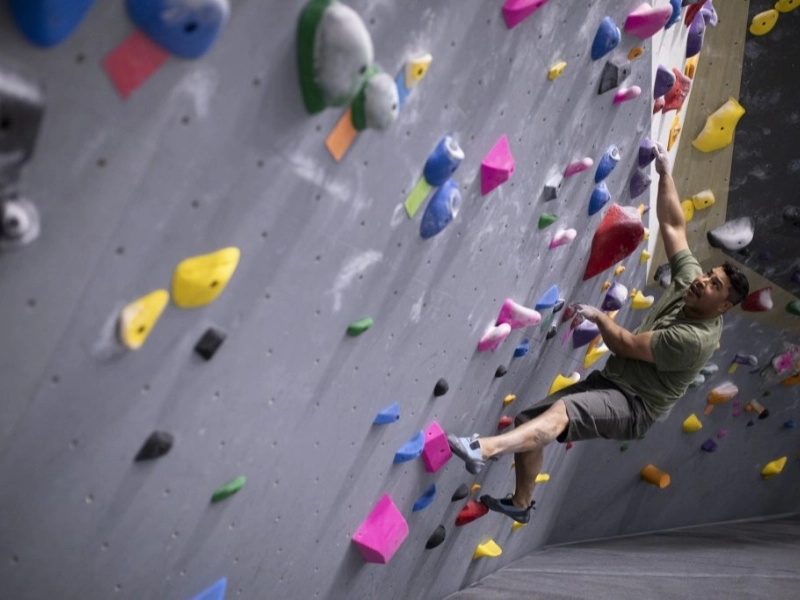 You can repeat a problem as many times as you'd like when bouldering alone. This can assist you in perfecting the technique of a specific motion. Watching a more seasoned climber can also be beneficial. The majority of climbers are amiable individuals who will be delighted to offer advice if you ask them.
Grades are often highly arbitrary, and different people may have different definitions of what constitutes a "hard" problem. Try not to worry too much about the grades and instead concentrate on honing your technique.
Check whether your gym provides group classes or social activities if you're alone and not able to find someone to climb with. These can be excellent for forming new friendships and a sense of community. While travelling, you can also look for climbing companions in campgrounds and hostels or on Facebook groups.
You can repeat a problem as many times as you'd like when bouldering alone. This can assist you in perfecting the technique of a specific motion. Watching a more seasoned climber can also be beneficial. The majority of climbers are amiable individuals who will be delighted to offer advice if you ask them.
Grades are often highly arbitrary, and different people may have different definitions of what constitutes a "hard" problem. Try not to worry too much about the grades and instead concentrate on honing your technique.
Check whether your gym provides group classes or social activities if you're alone and not able to find someone to climb with. These can be excellent for forming new friendships and a sense of community. While travelling, you can also look for climbing companions in campgrounds and hostels or on Facebook groups.
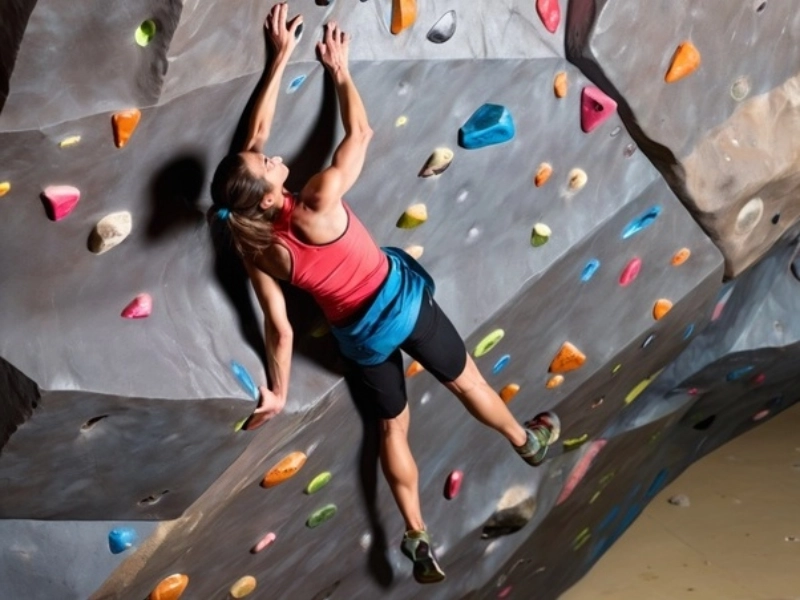 Bouldering involves a lot of falling, which can be frightening for novice climbers. To prevent injuries, learning how to fall safely is essential.
It's also critical to have faith in your capacity to recover from a fall. Your confidence will grow as you boulder more, and falling on increasingly difficult routes will come more naturally to you.
Finally, when bouldering alone, pay attention to your surroundings. When it's feasible, try to descend the wall, and make sure no one is underneath or nearby before leaping off the edge. By observing how other climbers fall on a route, you can gain confidence from watching other climbs. Studying how other people use the grips on a route can also help you get better at it.
Bouldering involves a lot of falling, which can be frightening for novice climbers. To prevent injuries, learning how to fall safely is essential.
It's also critical to have faith in your capacity to recover from a fall. Your confidence will grow as you boulder more, and falling on increasingly difficult routes will come more naturally to you.
Finally, when bouldering alone, pay attention to your surroundings. When it's feasible, try to descend the wall, and make sure no one is underneath or nearby before leaping off the edge. By observing how other climbers fall on a route, you can gain confidence from watching other climbs. Studying how other people use the grips on a route can also help you get better at it.
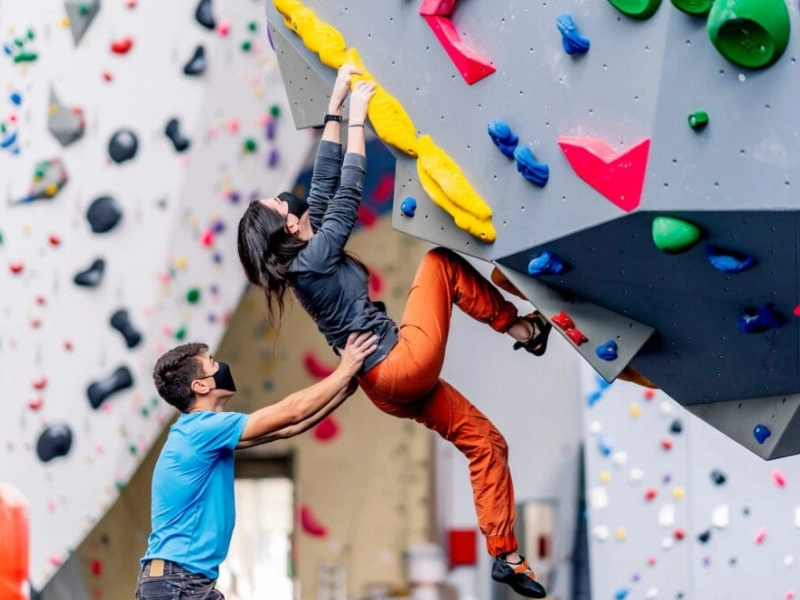 If you exercise caution, bouldering by yourself can be quite safe. It's critical to pay attention to your surroundings and only ascend obstacles with safe landing zones. Additionally, it is sense to wear a helmet if you want to go outside.
When bouldering by yourself, it's crucial to keep other climbers in mind. Although most individuals are hesitant to watch other climbers work on a problem, this is a great way to learn. You can become more proficient with your footwork and body positioning on the wall by seeing how others solve problems.
Although bouldering at a gym with friends is great, bouldering by yourself is equally acceptable. Making new acquaintances at your neighbourhood gym or climbing area is a great way to socialise with other climbers.
If you exercise caution, bouldering by yourself can be quite safe. It's critical to pay attention to your surroundings and only ascend obstacles with safe landing zones. Additionally, it is sense to wear a helmet if you want to go outside.
When bouldering by yourself, it's crucial to keep other climbers in mind. Although most individuals are hesitant to watch other climbers work on a problem, this is a great way to learn. You can become more proficient with your footwork and body positioning on the wall by seeing how others solve problems.
Although bouldering at a gym with friends is great, bouldering by yourself is equally acceptable. Making new acquaintances at your neighbourhood gym or climbing area is a great way to socialise with other climbers.